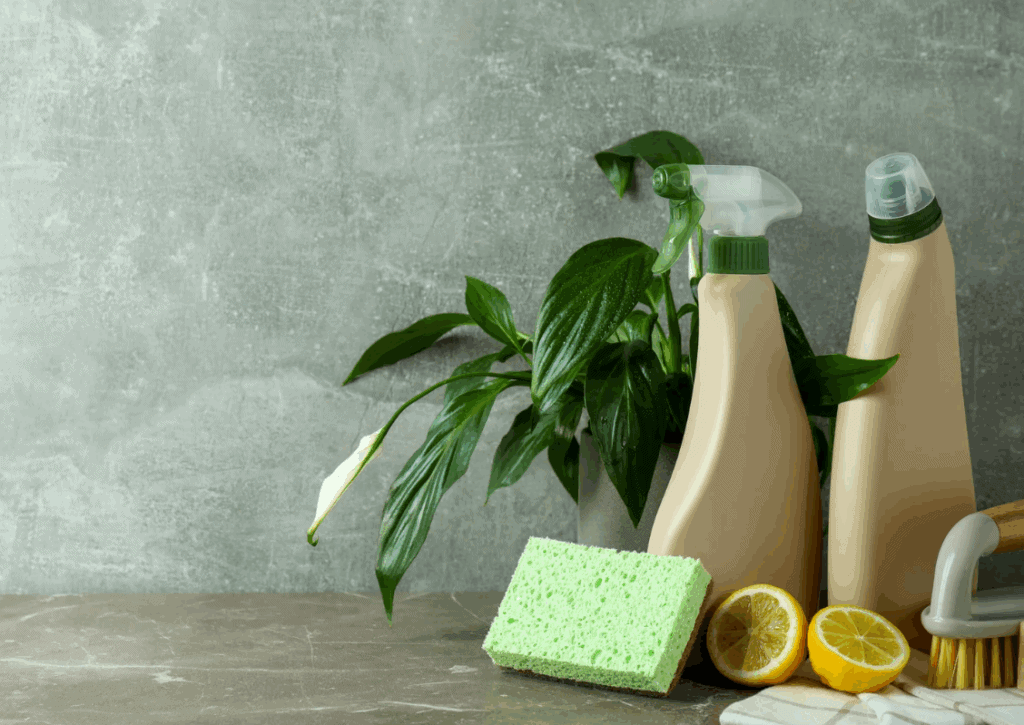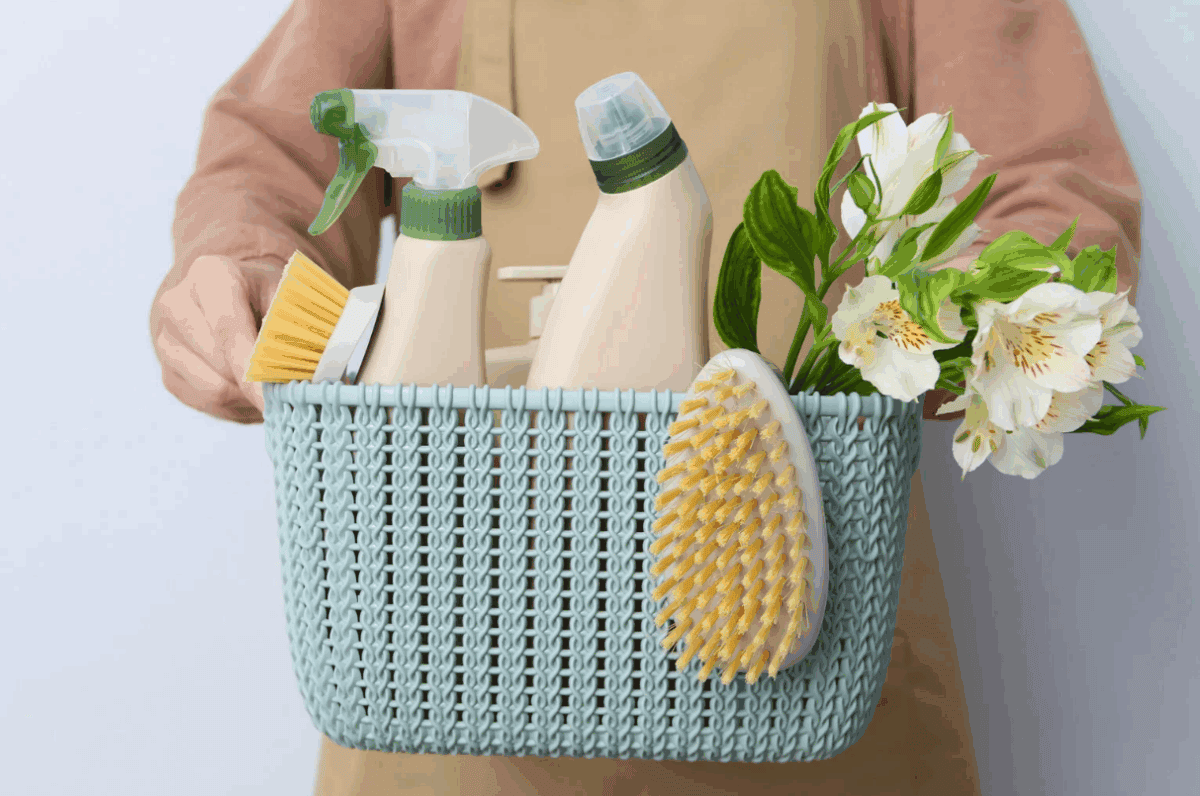The Green Dream: What’s the Hype?
Everywhere you look, someone’s cleaning their kitchen with vinegar, baking soda, and a positive attitude. There’s a cottage industry built on the idea that you don’t need “chemicals” — just raid your pantry and voilà, your house is sparkling and you saved the planet.
But let’s get real: a lot of what’s sold as “eco-cleaning” is less about science and more about selling you an idea (and maybe some cute reusable bottles).
The Homemade Solution Hall of Fame
- Vinegar – Supposedly kills everything. Spoiler: it doesn’t. Vinegar is acidic, yes, and it’s okay for dissolving mineral deposits and cutting grease. But it’s not going to disinfect your bathroom like a commercial disinfectant. Bacteria laugh in acetic acid’s face.
- Baking Soda – Good for scrubbing. It’s mildly abrasive, so it’ll get that dried tomato sauce off your stove. Will it “purify the air”? Not unless you throw a kilo of it at a moldy wall.
- Lemon Juice – Smells nice. Cuts through some grease. But it’s not going to save you from actual germs.
- Essential Oils – Sure, your place smells like a lavender field, but newsflash: most essential oils do not have proven cleaning properties. They’re for vibes, not viruses.

The Science Bit (Without the Boring Part)
If you want to actually kill germs, you need something proven to do it. The CDC, EPA, and every scientist with a lab coat says you need a real disinfectant for that. Vinegar and lemon juice are not on the list. Homemade cleaners are fine for general cleaning, but if you want your bathroom to be really clean (think: after someone’s had the flu), you need the hard stuff.
So… Is Eco-Cleaning Total BS?
Not exactly. If you’re just doing regular maintenance — wiping down surfaces, cleaning up spills, making your sink shine — homemade solutions are fine. They’re cheap, non-toxic, and you know exactly what’s in them (no “mystery ingredients” like in store-bought stuff).
But don’t kid yourself: they’re not miracle workers. For deep cleaning, sanitizing, or fighting serious grime and germs, you’ll need something stronger. Sometimes “green” means “ineffective.”
Final Verdict: Use Your Brain, Not Just Your Blender
Want to be eco-friendly? Great. Just don’t buy into every social media hack you see. Homemade solutions have their place — just don’t expect them to replace every product under your sink. Cleaning isn’t magic. It’s chemistry. And sometimes, you need more than a lemon and a prayer.
So, use what works for you, but don’t be afraid of real cleaners when it matters. Eco-cleaning: not nonsense, but not a miracle either. That’s the dirty truth.


